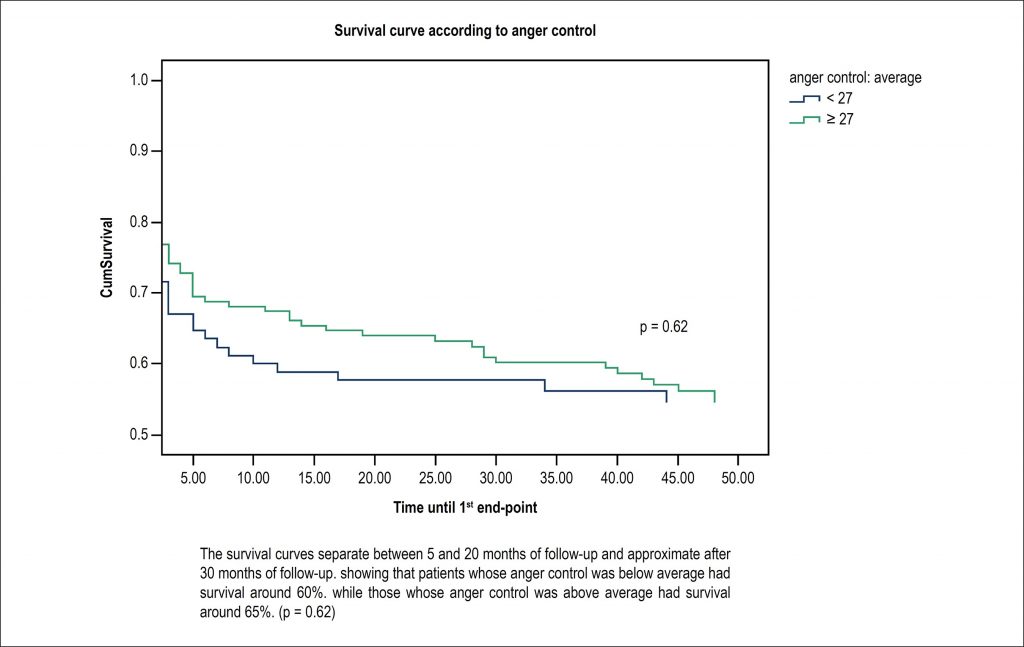Arq. Bras. Cardiol. 2018; 111(3): 410-416
Anger and Coronary Artery Disease in Women Submitted to Coronary Angiography: A 48-Month Follow-Up
DOI: 10.5935/abc.20180165
This Original Article is referred by the Short Editorial "Anger and Cardiovascular Disease: An Old and Complicated Relationship".
Abstract
Background:
Anger control was significantly lower in patients with coronary artery disease (CAD), regardless of traditionally known risk factors, occurrence of prior events or other anger aspects in a previous study of our research group.
Objective:
To assess the association between anger and CAD, its clinical course and predictors of low anger control in women submitted to coronary angiography.
Methods:
This is a cohort prospective study. Anger was assessed by use of Spielberger’s State-Trait Anger Expression Inventory (STAXI). Women were consecutively scheduled to undergo coronary angiography, considering CAD definition as ≥ 50% stenosis of one epicardial coronary artery.
Results:
During the study, 255 women were included, being divided into two groups according to their anger control average (26.99). Those with anger control below average were younger and had a family history of CAD. Patients were followed up for 48 months to verify the occurrence of major cardiovascular events.
Conclusion:
Women with CAD undergoing coronary angiography had lower anger control, which was associated with age and CAD family history. On clinical follow-up, event-free survival did not significantly differ between patients with anger control above or below average.
Keywords: Anger; Coronary Artery Disease/mortality; Personality Inventory; STAXI
388

